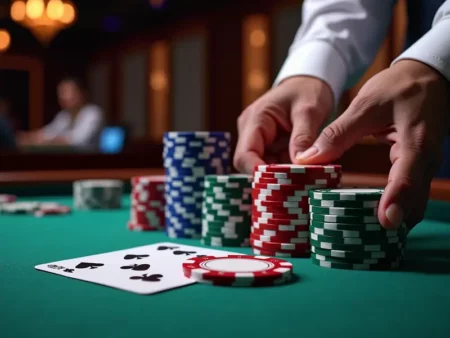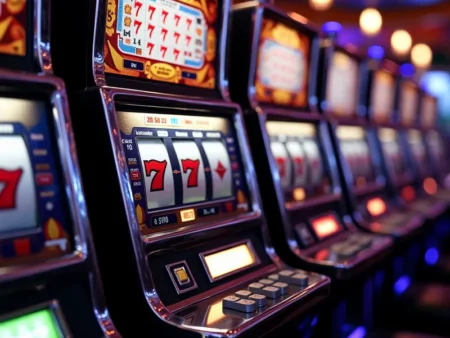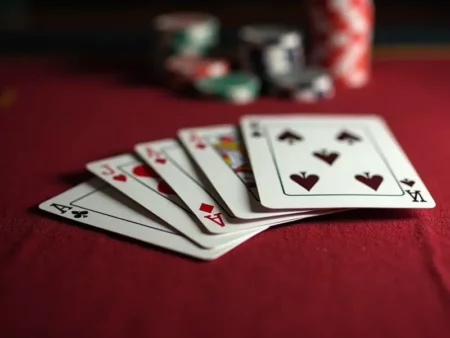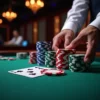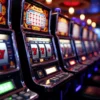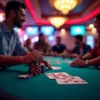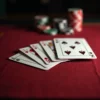Gambling Addiction Help: How to Stop Gambling and Find Support
Key Takeaways
- Gambling addiction affects millions, causing financial and emotional turmoil.
- Understanding how addiction develops helps in recognizing signs and symptoms.
- Practical strategies like self-exclusion and removing access to funds are essential steps to stop gambling.
- Professional treatment options such as CBT and support groups provide structured recovery support.
- Responsible gambling resources and helplines offer ongoing help and prevention.
Table of Contents
- Understanding Gambling Addiction
- How to Stop Gambling: Practical Strategies
- Gambling Addiction Treatment Options
- Role and Benefits of Gambling Support Groups
- Responsible Gambling Resources
- Conclusion: Recovery Is Possible
- FAQ
Understanding Gambling Addiction
Gambling addiction (or gambling disorder) is an uncontrollable urge to gamble despite negative consequences.
How It Develops:
- Starts as recreational gambling but escalates due to thrill-seeking or chasing losses.
(See more about online gambling for beginners and safe start tips)
Signs & Symptoms:
- Preoccupation with gambling
- Needing to bet more money to feel excitement
- Failed attempts to quit
- Lying about gambling habits
- Jeopardizing relationships or jobs
- Relying on others for financial bailouts
How to Stop Gambling: Practical Strategies
If you’re struggling with compulsive gambling, these practical steps can help you quit:
1. Self-Exclusion Programs
- Ban yourself from casinos and online gambling sites. For detailed info, see our guide on casinos with self-exclusion and responsible gambling tools.
2. Remove Access to Gambling Funds
- Cancel credit cards or limit cash access. Consider safer payment methods like prepaid gambling cards.
3. Set Strict Limits
- Decide how much time and money you can spend (if gambling recreationally). Responsible gambling tools like deposit limits are also helpful (Responsible Gambling Tools Guide).
4. Avoid Triggers
- Stay away from sports events, casinos, or gambling ads. For sports betting info and avoiding triggers, check best sports betting sites and strategies.
5. Replace Gambling with Healthy Habits
- Take up new hobbies like exercise, reading, or volunteering. For other rewarding activities, see best social casinos guide.
Mindset Shifts for Recovery:
- Admit the problem and seek help.
- Build a support network (friends, family, or groups).
- Focus on long-term financial and personal goals.
- Challenge irrational beliefs (e.g., “I’ll win back my losses”).
Gambling Addiction Treatment Options
Professional gambling addiction treatment can provide structured support:
1. Cognitive-Behavioral Therapy (CBT)
- Helps identify triggers and change harmful thought patterns. Learn about therapeutic approaches in our gambling addiction treatment guide.
2. Counseling & Therapy
- Addresses emotional roots of addiction. Support groups like Gamblers Anonymous also provide effective peer counseling.
3. Rehab Programs (Inpatient/Outpatient)
- Provides structured recovery support.
Benefits of Professional Help:
- Personalized treatment plans
- Accountability
- Addresses co-occurring mental health issues
Role and Benefits of Gambling Support Groups
Gambling support groups offer community and accountability:
Examples:
- Gamblers Anonymous (GA) – 12-step program (Gamblers Anonymous Meetings Guide)
- Local peer support groups
Key Benefits:
- Non-judgmental environment
- Shared experiences and coping strategies
- Sponsorship for accountability
Responsible Gambling Resources
If you or someone you know needs gambling addiction help, these responsible gambling resources can assist:
1. Helplines
- National Problem Gambling Helpline (1-800-522-4700) – Free, confidential support. For other help resources, see our responsible gambling tips and safety guide.
2. Online Tools
- Self-assessment quizzes (e.g., gambling addiction test)
- Budgeting apps to track spending
3. Self-Exclusion Programs
- Voluntary bans from casinos and gambling websites. Details in casinos with self-exclusion & healthy gambling tools guide.
How to Access Help:
- Online (websites, forums – see best gambling forums & communities)
- Mental health agencies
- Gambling venues (self-exclusion sign-ups)
Conclusion: Recovery Is Possible
Gambling addiction is tough, but help is available. Key steps include:
- Recognizing the problem (see gambling addiction signs & symptoms)
- Using strategies to stop gambling
- Seeking professional treatment
- Joining support groups
- Using responsible gambling resources
If you or a loved one is struggling, take action today. Call a helpline, join a support group, or seek therapy. Recovery is possible with the right gambling addiction help.
(AddictionHelp, Right Choice Recovery)
